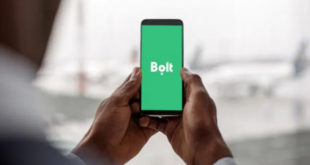TBD, a business from Block focused on open source decentralized technologies, today unveiled a technical preview of tbDEX: an open source liquidity and trust protocol to unlock frictionless commerce and financial access globally. At its core, the tbDEX protocol facilitates the formation of mutual trust between counterparties on an open and permissionless network. It also enables counterparties to negotiate requirements to enable compliant transactions. Yellow Card becomes the first Participating Financial Institution (PFI) on tbDEX that offers liquidity across 20 African countries.
“tbDEX bridges the gap between the old and the new – enabling anyone to benefit from decentralized payment systems and digital assets, with easy on- and off-ramps to legacy payment systems and fiat currencies.” says Emily Chiu, COO of TBD. “For developers, adopting the tbDEX protocol unlocks global liquidity for their customers, while avoiding the complexity associated with bespoke API integrations with each and every provider.”
Re-Imagining a New World of Payments and Commerce
Globally, 1.7 billion adults lack access to the banking system, yet two-thirds of them own a mobile phone that could help them access financial services. The internet and wireless technology has given us the information infrastructure we need to serve everybody, but money and payments have not kept pace.
An open, decentralized financial system will enable people and institutions to exchange value and transact with each other globally, and at significantly lower costs and more inclusively than what traditional financial systems allow. tbDEX was formed as an open source, permissionless protocol out of a desire to enable everyone to participate in this vision for the future.
“Core to tbDEX’s innovation is the creation of a trust protocol for the exchange of value. This is useful for bitcoin, stablecoins, digital assets, and traditional fiat alike – by creating a standardized way to establish trusted economic and commercial transactions on the internet through an internet-native financial protocol,” says Mike Brock, CEO of TBD. “The absence of trust in payments means you’ll have more fraud, misrouted payments, and higher financial losses. This increases the cost of financial transactions for everyone.”
tbDEX Protocol: A New Trust and Identity Layer for Digital Payments
The tbDEX protocol creates a bridge, based on open standards, that connects the world of legacy money to digital money and assets, without the need for centralized intermediaries or governance tokens. True to open source practices, tbDEX is a protocol that is available to everyone, but owned by no one.
The protocol enables participants to securely validate counterparty identity and trust, as well as desired compliance with relevant laws and regulations. After trust establishment, tbDEX’s standard messaging protocol enables Participating Financial Institutions (PFIs) and counterparties to discover, negotiate, and confirm transactions using a bid and ask system. Once transaction details are confirmed, participants execute and settle these trades outside of the protocol.
Verifiable Credentials (VCs) are core to establishing trust and compliance on the tbDEX protocol. VCs are an open standard established by The World Wide Web Consortium (W3C) that enable digital claims to be easily shared in a secure, tamper-proof, and independently verifiable way using globally recognized standards. VCs provide a standard way to express physical credentials across the digital world in a way that is cryptographically secure, privacy respecting, and machine verifiable. These credentials can be proof of identity, proof of driver’s license, or any other kind of credential, securely attached to an identifier that you own and can securely prove is yours.
TBD is pioneering the use of VCs for compliance with Anti-Money Laundering (AML), Countering the Financing of Terrorism (CTF), and sanctions regulations to ensure that networks built on the tbDEX protocol are ones that regulators and regulated financial institutions can trust.
Building a Truly Open Ecosystem
The tbDEX protocol allows any organization that shares the vision of a decentralized and open global payments system to establish new services and benefit from an ever-growing network of participants. The network effects grow stronger with each additional participant. Participants that will bring this to life include:
Participating Financial Institutions (PFIs) are entities that offer liquidity. PFIs can be, but are not limited to, fintech companies, regional or large institutional banks, and other financial institutions. PFIs have access to payment systems and the ability to facilitate fiat exchanges for digital assets (or vice versa). Any PFI can run a node on the network without third-party approval by any individual, federation, or organization. At scale, a competitive network of PFIs brings more liquidity and competition, resulting in lower fees and faster transaction times.
Wallets and Applications. Wallets or apps facilitate exchanges with PFIs. Self-custody wallets and non-financial apps may also seek liquidity on the tbDEX network. Wallet and app developers may design features and functionality tailored to their desired user experience. For example, a wallet could algorithmically select the PFI based on speed, cost, or track record — or delegate that choice to the owner of the wallet.
Issuers of Verifiable Credentials (VCs). Financial use cases on tbDEX will be unlocked through a network of credible identity issuers and verifiers. Examples could be authoritative issuers, such as a government agency issuing a physical identity document as a VC. Digital identity verification (IDV) providers globally can play a key role in verifying the information upon which the VCs rely. As such, a financial institution can issue a VC based on its existing identity verification and KYC onboarding process. It’s up to verifiers to decide whether to trust the VC based on their regulatory obligations and the level of assurance they have in the issuer.
Any potential participants who would like to learn more about tbDEX can download the whitepaper and connect with the TBD team by emailing partnerships@tbd.email.
Yellow Card Becomes the First PFI on tbDEX, Unlocking Off-Ramps into 20 African Countries While the tbDEX protocol can facilitate many use cases, cross border payments and commerce are amongst the first that TBD is exploring. Earlier this year, Yellow Card built an implementation of tbDEX that facilitated the exchange of bitcoin into Kenyan shillings, deposited in an M-PESA account in real time. This used the tbDEX protocol to negotiate the terms of the asset exchange using tbDEX messages; and establish compliance using sanctions VCs to fulfill Yellow Card’s legal and regulatory obligations.
Today, Yellow Card establishes the first PFI on the network. Yellow Card offers off-ramps into both bank and mobile money accounts as well as liquidity across 20 African countries, including Botswana , Cameroon , DR Congo , Côte d’Ivoire , Gabon , Ghana , Kenya , Malawi , Nigeria , Republic of Congo , Rwanda , Senegal , South Africa , Tanzania , Uganda , Zambia , Togo, Mali, the Republic of Benin, and Burkina Faso.
Interested developers can benefit from Yellow Card’s PFI offerings by engaging with the tbDEX protocol via TBD’s open source software developer kits (SDKs).
“It’s a true honor to be chosen by TBD as the first PFI for tbDEX. These collaborations, especially of this caliber, serve as a compelling testament to the dedication and hard work of the Yellow Card team—especially our compliance, treasury, and commercial teams—but also to our collective vision with TBD for reshaping the landscape of cross-border payments across Africa and the world,” said Chris Maurice, CEO and co-founder of Yellow Card.
tbDEX SDKs for Typescript and Kotlin / Java Now Available; Additional Platforms Coming in 2024 Today, TBD launched tbDEX’s first set of SDKs on Typescript and Kotlin / Java. These SDKs make it easy for participants to create and manage their identifiers, issue and accept VCs, negotiate bids and asks, and engage in the protocol.
These SDKs offer a range of functionality and include:
tbDEX SDK: used by participants to construct, verify, and validate tbDEX messages
DID SDK: used to create and resolve identifiers (DIDs) that represent institutions and participants
Credentials SDK: used to create and verify the verifiable credentials (VCs) that get sent back to applicants, and construct data structures needed to exchange VCs
Crypto SDK: contains the cryptographic foundation needed for DIDs, VCs, and tbDEX messages
Encoders SDK: contains encode and decode utility functions needed for DIDs, VCs, and tbDEX.
In 2024 TBD plans to release additional SDKs across platforms, including SWIFT and Android. To learn more and start developing with tbDEX SDKs, please visit developer.tbd.website.
About TBD
As one of four businesses at Block (fka Square), TBD is focused on creating a decentralized future that returns ownership and control over your finances, data, and identity. Guided by this vision, TBD is building an open source developer platform and infrastructure that enables everyone to access and participate in the global economy.
About Yellow Card
Yellow Card is the largest and only licensed Stablecoin on/off ramp on the African continent. Operating across 20 countries, we provide individuals and businesses of all sizes across Africa with secure, liquid, and cost-effective access to USDT, USDC, PYUSD, and BTC via their local fiat directly and through our Payments API.
Founded in 2016 by Chris Maurice (CEO) and Justin Poiroux (CTO), Yellow Card launched in Nigeria in 2019, and since then it has quickly grown to be one of the fastest-growing fintechs in Africa, with a presence in 20 countries and over 1.7 million retail customers.
In 2023, Yellow Card was awarded the prestigious “Disrupter of the Year” award at the Africa Financial Industry Summit (AFIS). The award acknowledges companies that have demonstrated resilience in challenging times and whose innovation represents a market disruption.
 Home Of Ghana News Ghana News, Entertainment And More
Home Of Ghana News Ghana News, Entertainment And More





